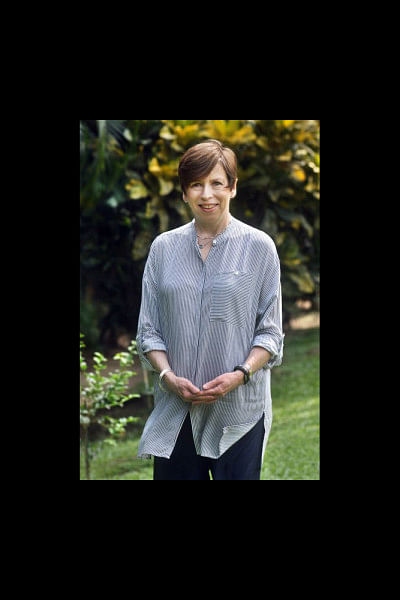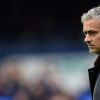“If people understand each other more, peace might come about as a result of that”

How do you define the BBC's role in the future?
We define our role as providing an international news service which helps people all over the world gain a greater understanding of the world around them. The founding motto of the BBC was: Nation shall speak peace unto nation. That motto stands as well nowadays as it has ever done, probably more so than ever. The idea is if people understand each other more, peace might come about as a result of that.
How is the BBC preparing to reach the target of 500 million audiences by 2021?
We are responding to the huge technological change in the way people are consuming media and are likely to consume media going forward. But interestingly enough, quite a lot of our growth in the last couple of years has been going into vernacular television. I think the power of pictures to tell a story will always be there. And the power of radio to provide argument and discussion will also be there. But people want something else as well. And we have to respond to all those things. But really my objective would be for us to try to launch as many television bulletins and language services as we can afford to do over the course of the next few years. For financial reasons, we had to retreat a bit on how many language services we provided. I don't want to retreat any further. If anything, I want to expand because I think that is the way to reach our target.
Nowadays there are a lot of international channels to choose from. Why should the audience pick the BBC?
Yes, a lot of nations seem to want their own international news service. The Turks are just about to launch an English-language one, which is going to be partly state-funded and partly privately-funded. This joins the plethora of international TV channels that we now see—Al Jazeera, RT, CCTV, France24, Deutsche Welle, BBC, CNN, the list goes on. Some of them are putting out classic news services and some of them are really there to project their own nation's perspective which has a value in itself. At the BBC we try to provide an international perspective. That is a fundamental difference between the BBC and many of these news providers that are entering the market.
How does the BBC ensure and maintain the quality of its news? What is the evaluation process at the BBC?
If you are going to be a proper public service broadcaster, it is important that you are properly funded and funded in a way that is free from political and commercial pressure. That's not to say you can't take commercial money but they can't influence your agenda. That's a constitutional issue for you—that's about how you are regulated, how you are set up, what your charter says about what you have to do. Fortunately, at the BBC we have got nearly a hundred years of that being the case and that instils a certain sets of ethos and values. And then of course, there is training and constant vigilance.
The BBC Trust with independently appointed trustees ensures that we are doing what we say we do. We also have various mechanisms for internal evaluation.
The world saw how the western media fuelled Bush's incursion into Iraq which was based on false claims. How is it that nobody tried to verify those claims?
That's a really good question. If you are asking if the BBC along with quite a lot of other media were too credulous about the claims being made by governments, the answer is yes.
The BBC has a duty to report what world leaders say. We also have a duty, however, to examine the veracity of those claims. That didn't happen at that time for a number of reasons. We didn't have access to the sites that the UN inspectors were going to visit. In order to verify that sort of stuff you need a heavy-duty investigative approach to it which wasn't applied at that time—partly because of the inability to do so and partly because, perhaps, there was some kind of inertia about it.
The other point I would make is that daily news is not history. They call it the first draft of history but it's not history. It's what people know about on that day. It's very easy in hindsight to say that the media got it wrong. Because that happens everyday. But things are revised in the light of extra knowledge that then comes along.
How can the BBC help the people of Bangladesh in realising their dreams in the post-MDG period?
That's also a really good question. We should be examining why Bangladesh has done better than many other countries in reaching some of the MDGs. That's a really interesting story. And when the next set of goals is kicked off, we will be giving each goal a significant amount of examination, coverage and exploration.
Would you like to say something to your Bangladeshi audience?
We are very grateful that you continue to listen, watch and read in the numbers that you are, and we very much hope that you continue to do so. We would love to hear from you through social media, through whatever form you would choose to communicate with us, about issues that are of concern to you, so we can reflect that in our output.

 For all latest news, follow The Daily Star's Google News channel.
For all latest news, follow The Daily Star's Google News channel. 








Comments